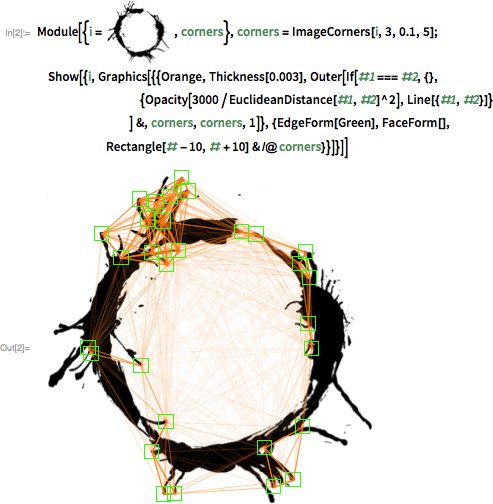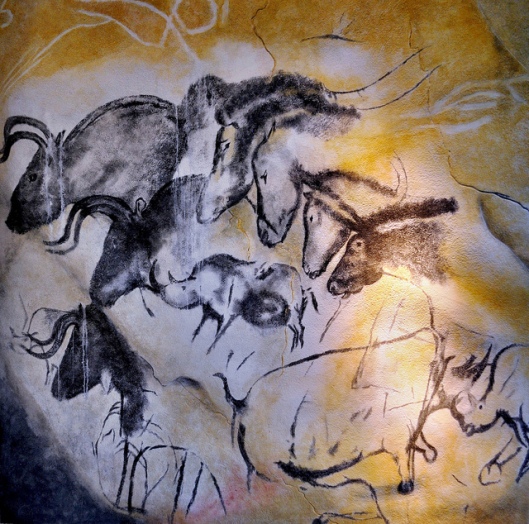
What language do you think in? Will you be able to change the language of your thought when you learn a new one? Or that inevitably happens?
The question isn't groundbreaking. It must have been asked by many thinkers born after the advent of language. Can thought exist without language? How has it been existing in ancient human? Will it be a picture? What have we lost, if so, in the transition from visual to verbal thoughts?
The ancient of paintings of the world in the Chauvet Cave of France puts enigmatic images of animals on display in a tunnel melting through time.


This could be the most ancient example of psychedelic trance since the information about animal is not supposed to be represented here, rather, a unique disassociation of a one line image in a multitude of others is presented. Imagine this in a cave in a faraway mountain, surrounded only by the wildest of nature, seized by darkness all around, the fire inside the cave lights these images, flickering with the wind and all you could hear is howl and growl.
These images are experiences they were trying to share among themselves. The experiences of things unseen, nature un-encountered and perhaps a spiritual communion of fear, life, death, love, grace and wonder. By sharing my experiences, I trigger your sense of amazement and enable you to experience beyond what I have - with that intention, perhaps, this grand scheme of expression was probably ritualistically followed.
Today, we want to express because we have words, not the other way around.
Now, even after considering the expanse of most sacred form of language and it's purpose, it is still seemingly too far-fetched to think that the comprehension of a language can allow you to move through time - a rather misinterpreted postulate I would say. The Arrival suggests the same, too out-rightly.
I don't feel like going into the film.
Comments
Post a Comment